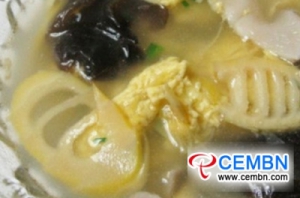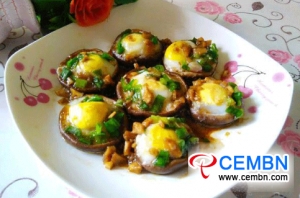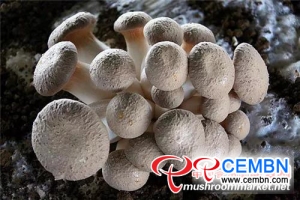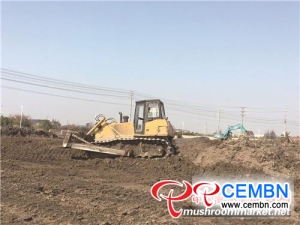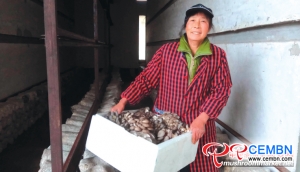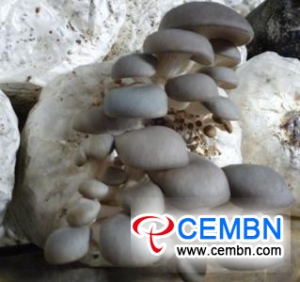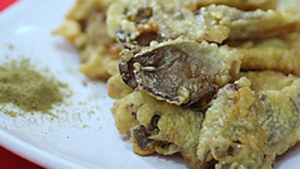
Mushroom Matter
Welcome on our platform. Why MUSHROOM MATTER? Because mushrooms play an important role in our lives as well in business. Our goal is to bring the world the very latest mushroom news with the upmost care to support the positioning of our beloved Mushroom.
On Friday 13 April 2018, His Majesty King Willem-Alexander will open CNC Grondstoffen's new Indoor Fresh Compost factory in Milsbeek, North Limburg.
Indoor Fresh Compost is a high quality and environmentally friendly ingredient for phase III compost. All 32 tunnels at the new factory started operating at the end of December 2017, so that all phase III compost currently produced by CNC Grondstoffen is based on the Indoor Fresh Compost procedure with an optimal process duration.
CNC Grondstoffen processes more than 600,000 tons of horse manure, chicken manure and gypsum annually to create high quality compost, or substrate, used to grow mushrooms. CNC Grondstoffen is one of the five companies that form CNC Holding. This group of companies has eight branches in the Netherlands and Poland and sells substrates for mushroom growing in more than 30 countries.
Circular economy
The production process that transforms manure into substrate is environmentally friendly. By fully reusing manure – which is actually a waste product – as an input resource CNC Grondstoffen contributes to the circular economy.
During the production process, air scrubbers remove ammonia emissions. The ammonia recovered in this way is reused in the production processes. To neutralise the odour of manure, CNC Grondstoffen uses bark-filled biobeds which contain micro-organisms that absorb the odours. The end product is a sustainable, high quality substrate for mushroom growing. The location of the factory, which facilitates fewer road transport kilometres, also reduces CO2 emissions by two million kilos per year.
Guided tour
Before the official opening ceremony, King Willem-Alexander will be given a guided tour of the new factory.
The opening of the new factory is by invitation only.
---------------------------------------------------------------------------------------------------------------------------------------------------------------------------------------------------------------------------------------------------------------------------------------------------------------------------
Zijne Majesteit de Koning Willem-Alexander opent op vrijdagmiddag 13 april 2018 de nieuwe Indoor Verse Compost fabriek van CNC Grondstoffen in Milsbeek, Noord-Limburg.
Indoor Verse Compost is een kwalitatief hoogwaardig en milieuvriendelijk ingrediënt voor doorgroeide compost. Eind december 2017 zijn alle 32 tunnels van de nieuwe fabriek in gebruik genomen, waardoor alle doorgroeide compost van CNC Grondstoffen nu geproduceerd wordt op basis van Indoor Verse Compost met een optimale procesduur.
CNC Grondstoffen verwerkt jaarlijks meer dan 600.000 ton paardenmest, kippenmest en gips tot een hoogwaardige compost voor de teelt van champignons, ofwel champignonsubstraat. CNC Grondstoffen is één van de vijf bedrijven van CNC Holding. De bedrijvengroep heeft acht vestigingen in Nederland en Polen en verkoopt substraten voor de teelt van paddenstoelen in meer dan dertig landen.
Circulaire economie
Het productieproces van mest naar substraat vindt op een milieuvriendelijke manier plaats. Door het volledige hergebruik van mest – eigenlijk een afvalproduct – levert CNC Grondstoffen een bijdrage aan een circulaire economie.
Tijdens het productieproces worden ammoniakgassen met luchtwassers verwijderd. De teruggewonnen ammoniak wordt hergebruikt in de productieprocessen. Om de mestgeur te neutraliseren, gebruikt CNC Grondstoffen biobedden, gevuld met boomschors. Deze bevatten micro-organismen die geurstoffen opnemen. Het uiteindelijke product is een duurzaam en hoogwaardig substraat voor de teelt van champignons. Vanwege de locatie van de fabriek wordt daarnaast door minder transportkilometers twee miljoen kilo CO2-uitstoot per jaar gereduceerd.
Rondleiding
Voorafgaand aan de officiële opening wordt Koning Willem-Alexander rondgeleid door de nieuwe fabriek.
De opening van de nieuwe fabriek is alleen bij te wonen voor genodigden.
Recent days, in Hongqiao Village, Rudong County, Jiangsu Province, digitized factory project of Straw mushroom which holds 100 million CNY of gross investment is in smooth construction. According to know, Phase One carries 20 million CNY of investment and covers 29 mu. After the formal production, the anticipated daily output on fresh Straw mushroom comes to 2000-2500 kg.















